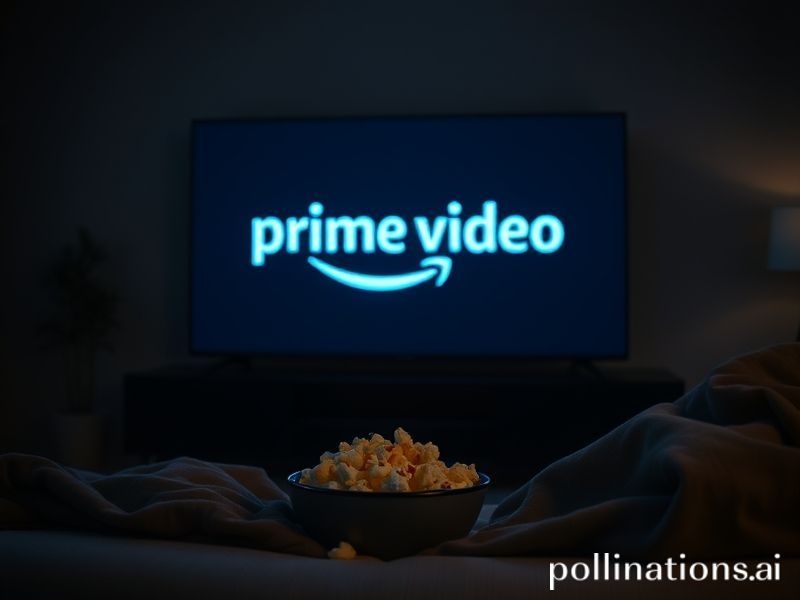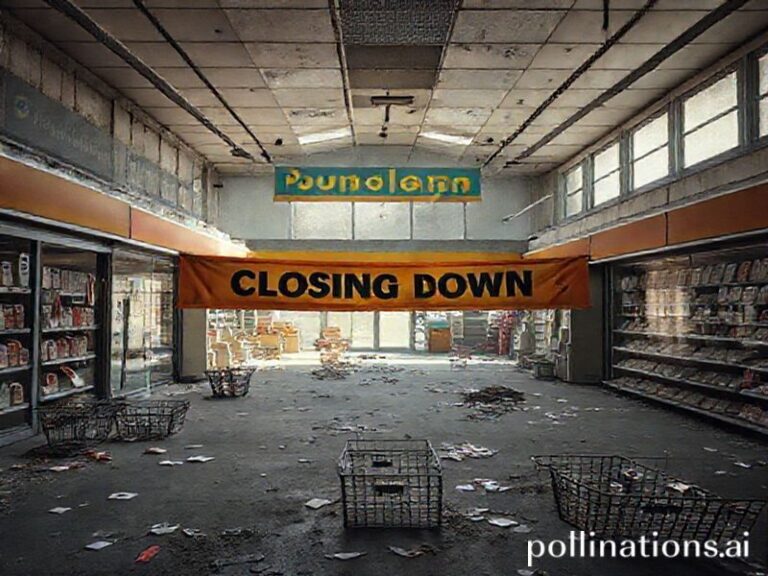Prime Video’s Global Takeover: How One Streaming Empire Colonized Your Couch and Your Data
Prime Video: A Global Streaming Empire Where Even Your Grandmother’s Telenovelas Are Now Data Points
By Our Jaded Correspondent in the Cloud
In the beginning, there was the word, and the word was “binge.” Then Amazon whispered, “Let there be Prime,” and lo, 200-odd countries discovered that their Friday nights could be reduced to a single “Skip Intro” button. Welcome to Prime Video, the streaming branch of the everything-store that already knows what toothpaste you prefer and, apparently, which Korean zombie drama will keep you from confronting your own mortality until at least 3:07 a.m.
From Mumbai to Milwaukee, the pitch is identical: for the price of a monthly burrito, you receive a library the size of Alexandria—if Alexandria had been curated by an algorithm trained on Comic-Con focus groups and the collective anxiety of late capitalism. In São Paulo, a bus driver queues up The Boys between shifts; in Warsaw, an insomniac accountant rewatches The Marvelous Mrs. Maisel for the sixth time because the alternative is listening to her upstairs neighbor learn the accordion. Same platform, same purple logo, same subtle reminder that individuality is just another metadata tag.
Of course, every empire needs colonies. Prime Video’s colonization strategy is elegantly blunt: throw local-language originals at the wall and see which ones stick long enough to generate a meme. The tactic has yielded Indian thrillers so violent they make Bollywood look like public television, German sci-fi that doubles as a national guilt simulator, and Nigerian romantic comedies proving that love, like bandwidth, is unevenly distributed. Each production is a soft-power Trojan horse: inside the wooden horse of entertainment hides the Greek soldier of Amazon’s retail ecosystem, ready to upsell you a Fire Stick, a 4K telly, and—why not—a bidet attachment.
The global south, ever the laboratory for late-stage experiments, offers the best vantage point. In Kenya, mobile internet bundles are cheaper than clean water, so Prime Video compresses itself into bite-sized data packets like a smuggler stuffing diamonds into condoms. Meanwhile, in France, culture ministers clutch their pearls because American subtitles dare to translate “omelette du fromage” without existential angst. The irony is thicker than a Parisian béchamel: Amazon, the very avatar of turbo-capitalism, now subsidizes European art cinema the way Medici popes once bankrolled frescoes—only this time the chapel ceiling is a loading screen peppered with “Sponsored by Alexa” banners.
Then there is the sportswashing annex. From Thursday Night Football in the United States to Premier League matches in the UK, Prime Video has learned what every despot knows: if you want to launder reputations, buy the circus along with the bread. Viewers tune in for goals; they stay because the platform quietly records how often they replay that contentious VAR decision, data that will later inform which shaving cream ad haunts their dreams. Bread, circuses, and biometric feedback—Caesar never had it so good.
Yet the most dystopian flourish is the banality of it all. In a bombed-out suburb of Kharkiv, a family huddles in a basement watching The Rings of Power on a cracked phone because dwarves and elves are more comforting than the real orcs outside. Somewhere in Silicon Valley, an intern updates the Ukrainian subtitle file and thinks, “Impactful.” The algorithm, agnostic to irony, merely logs a spike in post-apocalyptic fantasy streaming within a 50-kilometer radius of active shelling. Somewhere else, Jeff Bezos blasts off in a phallic rocket made possible, in part, by every late-night impulse purchase of Jack Ryan Season 3.
When historians excavate our era, they will find millennia-old cave paintings of bison, Renaissance frescoes of cherubs, and a Prime Video “Watch Next” row still cycling through identical thumbnails of muscular men named Chris. The conclusion writes itself: humanity evolved thumbs for tools, then used them to scroll past 2,000 years of culture in 0.7 seconds. The good news? You can cancel anytime. The bad news? You won’t. After all, next month brings the new season of that show where the world ends, which feels oddly reassuring—because at least on Prime Video, the apocalypse comes with Dolby Atmos.







